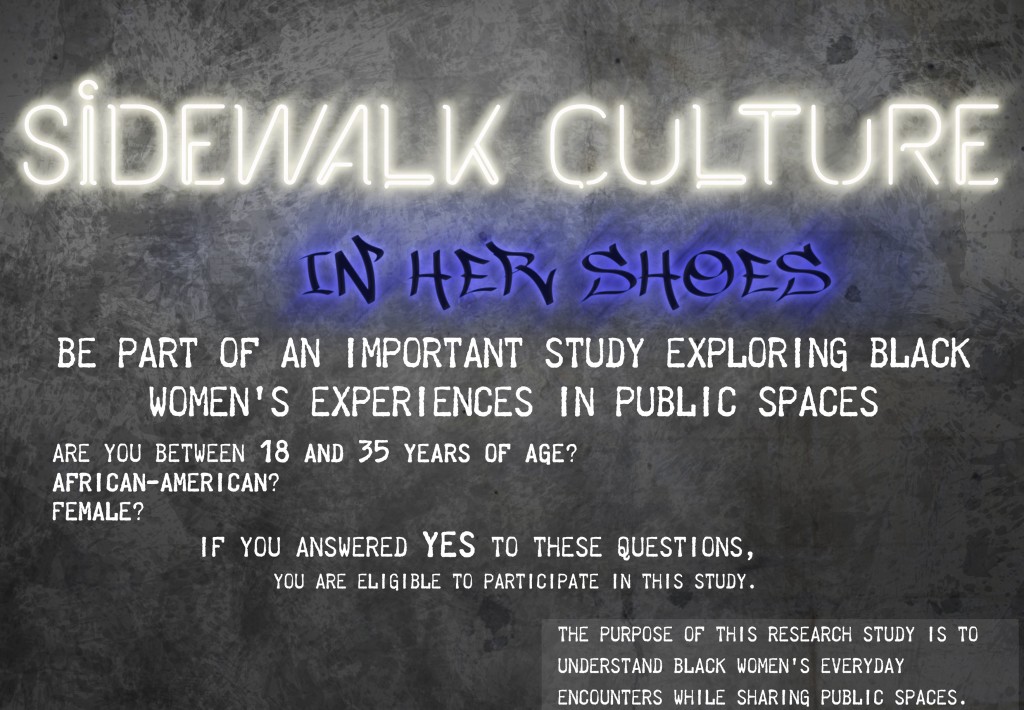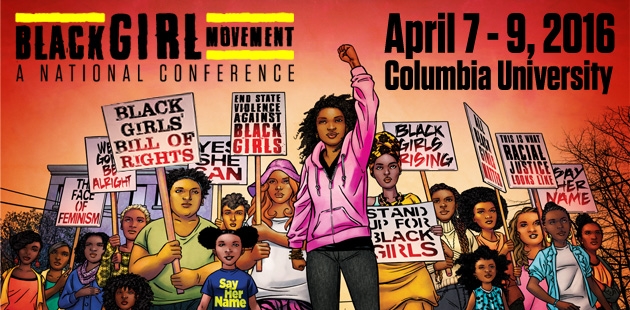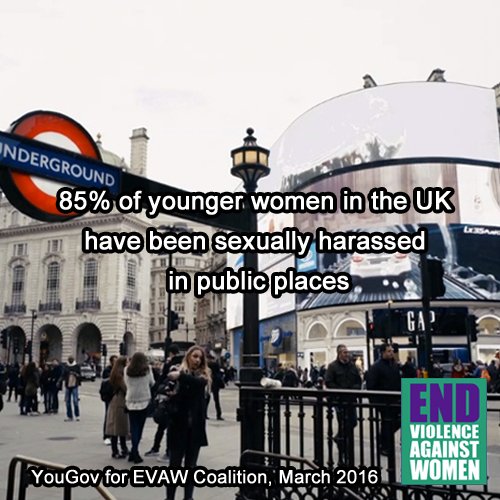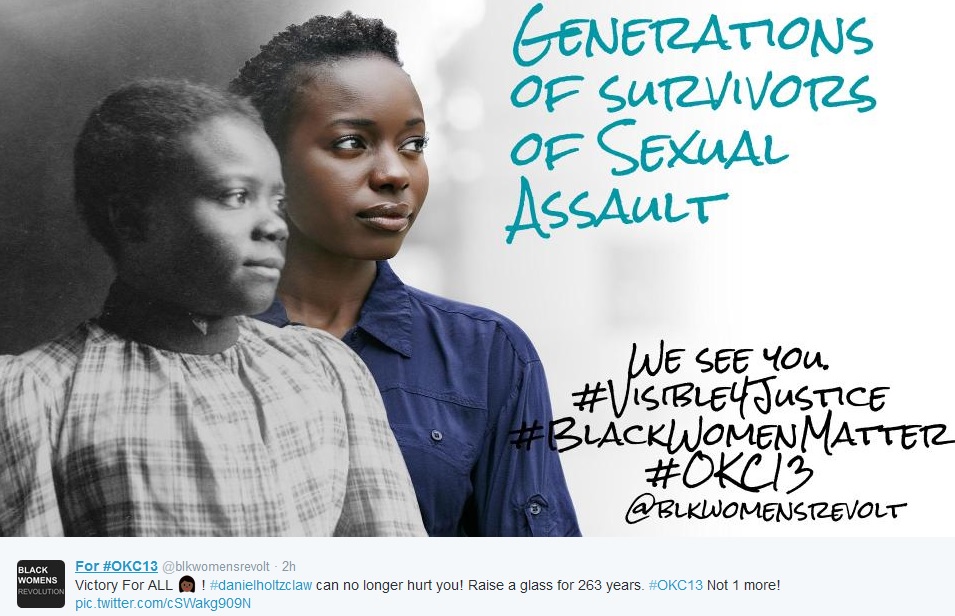4/29/16 UPDATED: Women ages 18-40 may take the survey.
Attention African American women ages 18-35 years old, female African American researchers at Yale University are studying YOUR experiences in public spaces and would love to hear from you. The survey will take 22-25 minutes of your time. The researchers believe that everyone has a unique story to tell, and they would like to help tell your story. Get updates via the Sidewalk Culture Facebook page.




